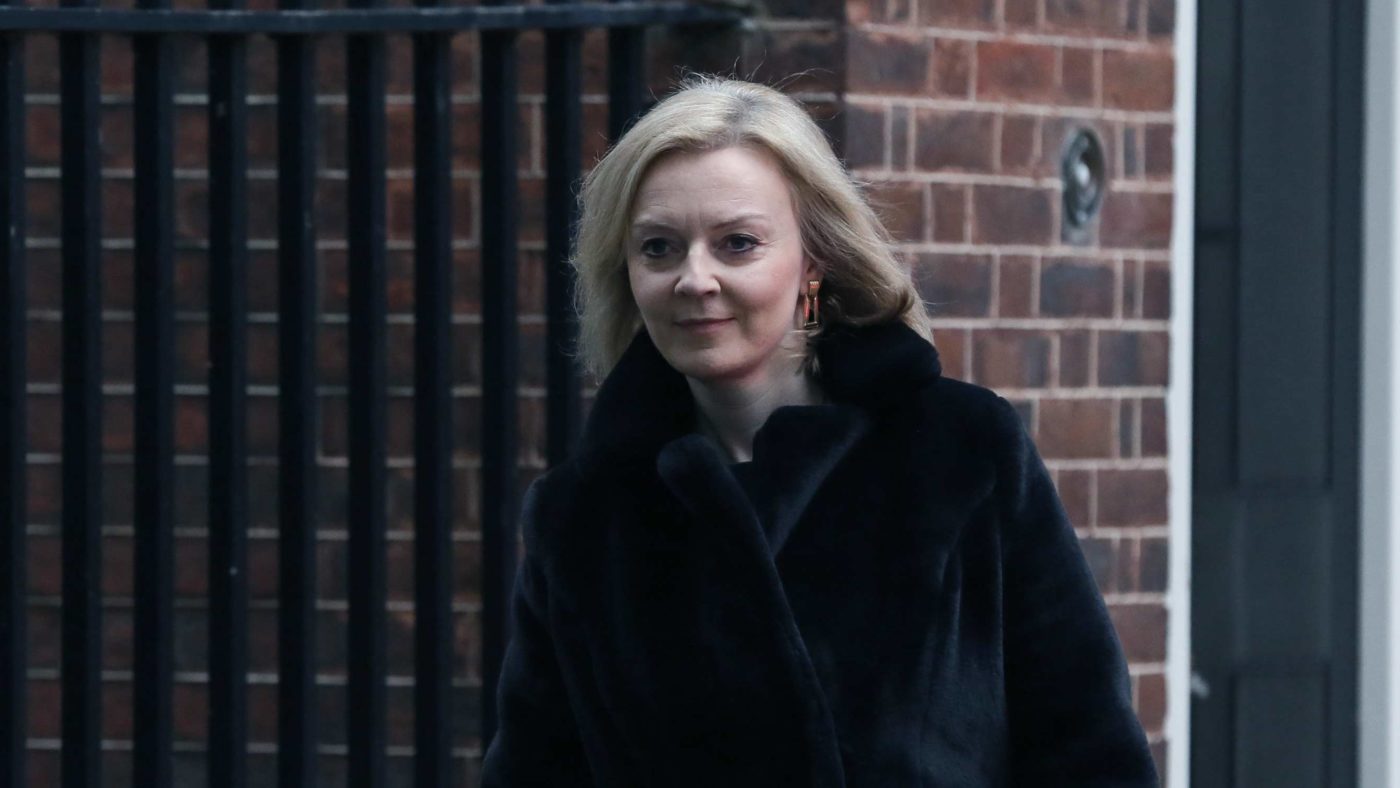Within the next week Northern Ireland’s Agriculture Minister Edwin Poots is expected to order officials to stop checking goods at the Irish Sea ‘border’ between Great Britain and Northern Ireland. The province’s First Minister, Paul Givan, confirmed yesterday that his Democratic Unionist Party colleague would act unilaterally to halt Protocol checks at Ulster’s ports.
Mr Poots’ decision was prompted by legal proceedings initiated by the anti-Protocol campaigner Jamie Bryson. As I set out in my last CapX piece, Mr Bryson argued that the checks were introduced in contravention of Northern Ireland’s power-sharing rules, which require ‘significant’ or ‘controversial’ policies to be discussed and agreed by the devolved executive.
Although Mr Poots’ department implemented aspects of the Irish Sea border, the DUP is strongly opposed to the Protocol. Its leader, Jeffrey Donaldson, has threatened to collapse the executive if unionist concerns about the Brexit deal are not addressed.
Rather than dispute Bryson’s legal arguments, Poots effectively conceded that they were valid. On Tuesday, he submitted a paper seeking the executive’s approval for continued checks on goods at Northern Ireland’s ports. It was anticipated that his party would vote against this document, effectively exercising the ‘veto’ that ensures decisions by the province’s devolved government command ‘cross-community’ support.
Sinn Fein duly blocked ministers from considering the paper, arguing that Poots was obliged to implement the Protocol whether or not discussions took place.
On Thursday, Givan told reporters that without the Executive’s agreement, ‘We (the DUP) believe that the checks continuing would be unlawful’. He indicated that civil servants would be ‘absolutely obliged’ to follow Mr Poots’ instructions.
While the DUP says it is acting out of legal necessity, its political opponents claim it is trying to provoke a crisis or pull off a stunt ahead of an Assembly election in May. Whether or not this is a party political gambit, it intensifies pressure on the EU and the UK to negotiate a lasting settlement that resolves the Protocol’s most controversial problems.
In 1998, the Good Friday Agreement tried to reconcile the constitutional reality that Northern Ireland would remain part of the UK with nationalists’ aspirations for an independent all-Ireland state. The idea that a political and economic border could be erected between the province and Great Britain without upsetting this balance was either naive or grossly irresponsible.
The Protocol flagrantly prioritised nationalists’ psychological need to pretend that a border with the Republic did not exist over unionists’ right to have Northern Ireland accepted as an integral part of the United Kingdom.
If the Agriculture Minister follows through on his threat to stop checks, it sets up possible confrontations with the DUP’s domestic political opponents, the EU, the Government and even Ulster’s civil service. The Northern Ireland Act, which enshrined the Good Friday Agreement in UK law, allows the Northern Ireland Secretary to overrule devolved ministers if they act in a way that contravenes ‘international obligations, … the interests of defence or national security’.
Yesterday, that possibility seemed to recede. The foreign secretary, Liz Truss, told a journalist that, if Edwin Poots stops checks, it is a matter for Northern Irish ministers to resolve. Whether this is a firm commitment, or whether there is room for ambiguity, may soon be tested.
If the Government were to overrule Poots, it would be obliged to explicitly enforce a Protocol that the prime minister described in the House of Commons this week as ‘insane’. Indeed, Boris Johnson said he ‘passionately’ supported Sir Jeffrey Donaldson’s ‘indignation’ at the sea border’s implementation.
The DUP leader quoted figures showing that the cost of bringing goods to Northern Ireland from Great Britain has increased by 27%, since the protocol was introduced. The University of Ulster’s senior economist, Esmond Birnie, estimated that it is removing £850m a year from the province’s economy.
It’s difficult to see how the Government could rationalise its recognition of the sea border’s absurdity with an intervention reintroducing checks against the wishes of devolved ministers. The whole thrust of its message to the EU, throughout the last year, has been that the scope of the Protocol is excessive and unnecessary. It continues to argue that goods should move within the United Kingdom without impediment.
But there are also rumours that the Government is divided over the necessity of removing the Protocol, with the Chancellor, Rishi Sunak, said to be sceptical about triggering its ‘emergency brake’, Article 16.
On the same day that the DUP announced its intention to stop checks, Liz Truss was in Belfast spreading the message that the sea border needs to be ‘fixed’. Ahead of her trip, the FCO released a video on Twitter, in which she said: ‘The Northern Ireland Protocol was designed to protect the peace process and respect all communities in Northern Ireland. It is doing the opposite.”
As the Stormont executive anticipates an enormous row over Poots’ next move, and a rancorous election campaign looms closer, this analysis seems irrefutable. The question is now inescapable; is the Government finally prepared to face down the EU to protect peace in Northern Ireland?
Click here to subscribe to our daily briefing – the best pieces from CapX and across the web.
CapX depends on the generosity of its readers. If you value what we do, please consider making a donation.


